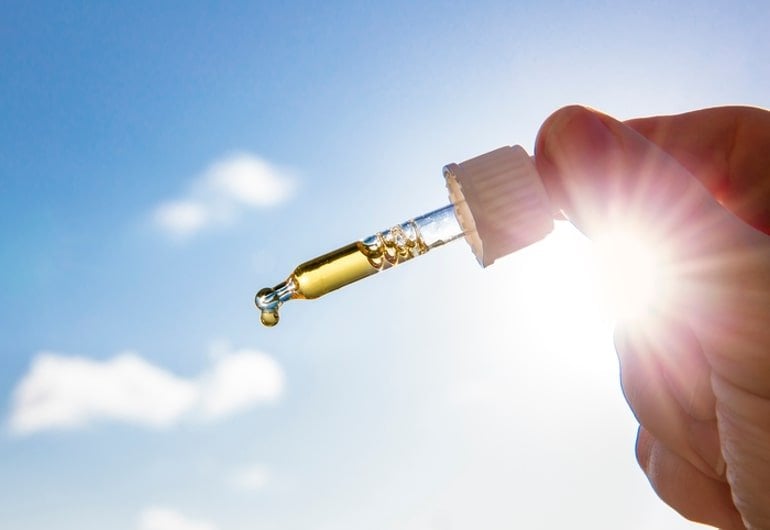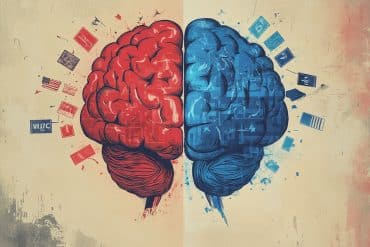Summary: Study reveals there is no evidence a six-month course of vitamin D supplementation improves mental or physical health for those with psychosis. However, while vitamin D supplementation did not improve symptoms, 77% of patients experienced vitamin D deficiencies.
Source: King’s College London
New research involving 149 participants found no evidence that vitamin D supplementation taken over six months improves mental or physical health symptoms in people with psychosis. Participants did however show high rates of vitamin D deficiency which could have longer term health impacts not captured in the study, according to researchers.
The DFEND Trial, published in JAMA Psychiatry, involved 149 participants with early psychosis, who were randomised to receive vitamin D or a placebo for six months.
The study was funded by the Stanley Medical Research Institute and received support from the National Institute for Health Research (NIHR) Maudsley Biomedical Research Centre, King’s College London and the NIHR Applied Research Collaboration (ARC) South London.
While the study showed no evidence of vitamin D supplementation improving physical or mental health symptoms, it revealed 74.6% of participants had insufficient or deficient vitamin D levels, with that figure rising to 93.4% among ethnic minority participants.
Vitamin D deficiency is more common in people with psychosis than the general population. This is thought to result from poor general health associated with inactive lifestyles, less exposure to the sun and poor general nutrition. Animal experiments have linked low vitamin D with changes in the brain, triggering speculation that vitamin D supplementation could improve mental health.
No previous studies have examined vitamin D supplementation in people with first episode psychosis, a group with high rates of vitamin D deficiency (42%) and who may be more responsive to supplementation than those with established psychosis.
The study’s lead author Professor Fiona Gaughran, Professor of Physical Health and Clinical Therapeutics at the Institute of Psychiatry, Psychology & Neuroscience, King’s College London, and Consultant Psychiatrist at the National Psychosis Unit at the South London and Maudsley NHS Foundation Trust said:
“While we didn’t show any effect of supplementing with vitamin D on mental or physical health over a six-month period in people with early psychosis, the rates of vitamin D insufficiency and deficiency in the group overall were very high, this state being almost universal in participants from Black or other minority racial or ethnic groups. Giving the vitamin D supplements increased vitamin D levels and was safe.
“These very high rates of vitamin deficiency and insufficiency may have longer-term negative health impacts which we have not measured, so raising awareness of the need to optimise vitamin D in people with psychosis is important. Future public health strategies should acknowledge the high risk of vitamin D insufficiency and deficiency in people with psychosis and consider any reasonable policy adjustments which may be needed to address this over and above general population guidance.”
The study recruited participants aged 18 to 65 between 2016 and 2019 from five NHS trusts in England: South London and Maudsley NHS Foundation Trust, Southern Health NHS Foundation Trust, Cheshire and Wirral Partnership NHS Foundation Trust, Kent and Medway NHS and Social Care Partnership Trust and South West London and St George’s Mental Health NHS Trust.

Participants were randomised to receive 6ml of vitamin D or a placebo administered by researchers in monthly doses with an oral syringe each month. Both researchers and participants were not told which they would receive, to avoid bias.
The researchers assessed participants after three and six months to check for any changes in their psychosis symptoms, with mood, function and cardiometabolic risk factors also measured at six months.
Professor John McGrath of Queensland Brain Institute, University of Queensland, Brisbane, Australia, said: “While animal studies indicate that low vitamin D during adulthood can alter brain functioning, the DFEND study did not find evidence that vitamin D supplementation helped people with early psychosis. This is disappointing, but we will continue to look for new candidate treatments for psychosis – this can be a very disabling illness and our current treatments are suboptimal.”
About this mental health research news
Author: Ryan Jewell
Source: King’s College London
Contact: Ryan Jewell – King’s College London
Image: The image is credited to Helin Loik-Tomson
Original Research: Closed access.
“Effect of Vitamin D Supplementation on Outcomes in People with Early Psychosis: The DFEND Randomised Clinical Trial” by Fiona Gaughran et al. JAMA Psychiatry
Abstract
Effect of Vitamin D Supplementation on Outcomes in People with Early Psychosis: The DFEND Randomised Clinical Trial
Importance
People with psychotic disorders have an increased risk of vitamin D deficiency, which is evident during first-episode psychosis (FEP) and associated with unfavorable mental and physical health outcomes.
Objective
To examine whether vitamin D supplementation contributes to improved clinical outcomes in FEP.
Design, Setting, and Participants
This multisite, double-blind, placebo-controlled, parallel-group randomized clinical trial from the UK examined adults 18 to 65 years of age within 3 years of a first presentation with a functional psychotic disorder who had no contraindication to vitamin D supplementation. A total of 2136 patients were assessed for eligibility, 835 were approached, 686 declined participation or were excluded, 149 were randomized, and 104 were followed up at 6 months. The study recruited participants from January 19, 2016, to June 14, 2019, with the final follow-up (after the last dose) completed on December 20, 2019.
Interventions
Monthly augmentation with 120 000 IU of cholecalciferol or placebo.
Main Outcomes and Measures
The primary outcome measure was total Positive and Negative Syndrome Scale (PANSS) score at 6 months. Secondary outcomes included total PANSS score at 3 months; PANSS positive, negative, and general psychopathology subscale scores at 3 and 6 months; Global Assessment of Function scores (for symptoms and disability); Calgary Depression Scale score, waist circumference, body mass index, and glycated hemoglobin, total cholesterol, C-reactive protein, and vitamin D concentrations at 6 months; and a planned sensitivity analysis in those with insufficient vitamin D levels at baseline.
Results
A total of 149 participants (mean [SD] age, 28.1 (8.5) years; 89 [59.7%] male; 65 [43.6%] Black or of other minoritized racial and ethnic group; 84 [56.4%] White [British, Irish, or of other White ethnicity]) were randomized. No differences were observed in the intention-to-treat analysis in the primary outcome, total PANSS score at 6 months (mean difference, 3.57; 95% CI, −1.11 to 8.25; P = .13), or the secondary outcomes at 3 and 6 months (PANSS positive subscore: mean difference, −0.98; 95% CI, −2.23 to 0.27 at 3 months; mean difference, 0.68; 95% CI, −0.69 to 1.99 at 6 months; PANSS negative subscore: mean difference, 0.68; 95% CI, −1.39 to 2.76 at 3 months; mean difference, 1.56; 95% CI, −0.31 to 3.44 at 6 months; and general psychopathology subscore: mean difference, −2.09; 95% CI, −4.36 to 0.18 at 3 months; mean difference, 1.31; 95% CI, −1.42 to 4.05 at 6 months).
There also were no significant differences in the Global Assessment of Function symptom score (mean difference, 0.02; 95% CI, −4.60 to 4.94); Global Assessment of Function disability score (mean difference, −0.01; 95% CI, −5.25 to 5.23), or Calgary Depression Scale score (mean difference, −0.39; 95% CI, −2.05 to 1.26) at 6 months. Vitamin D levels were very low in the study group, especially in Black participants and those who identified as another minoritized racial and ethnic group, 57 of 61 (93.4%) of whom had insufficient vitamin D. The treatment was safe and led to a significant increase in 25-hydroxyvitamin D concentrations.
Conclusions and Relevance
In this randomized clinical trial, no association was found between vitamin D supplementation and mental health or metabolic outcomes at 6 months. Because so few patients with FEP were vitamin D replete, the results of this study suggest that this group would benefit from active consideration in future population health strategies.
Trial Registration
isrctn.org Identifier: ISRCTN12424842







